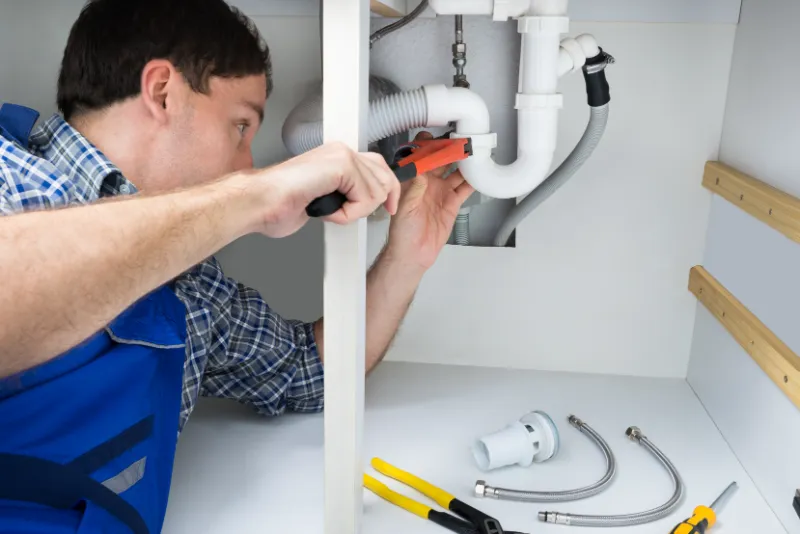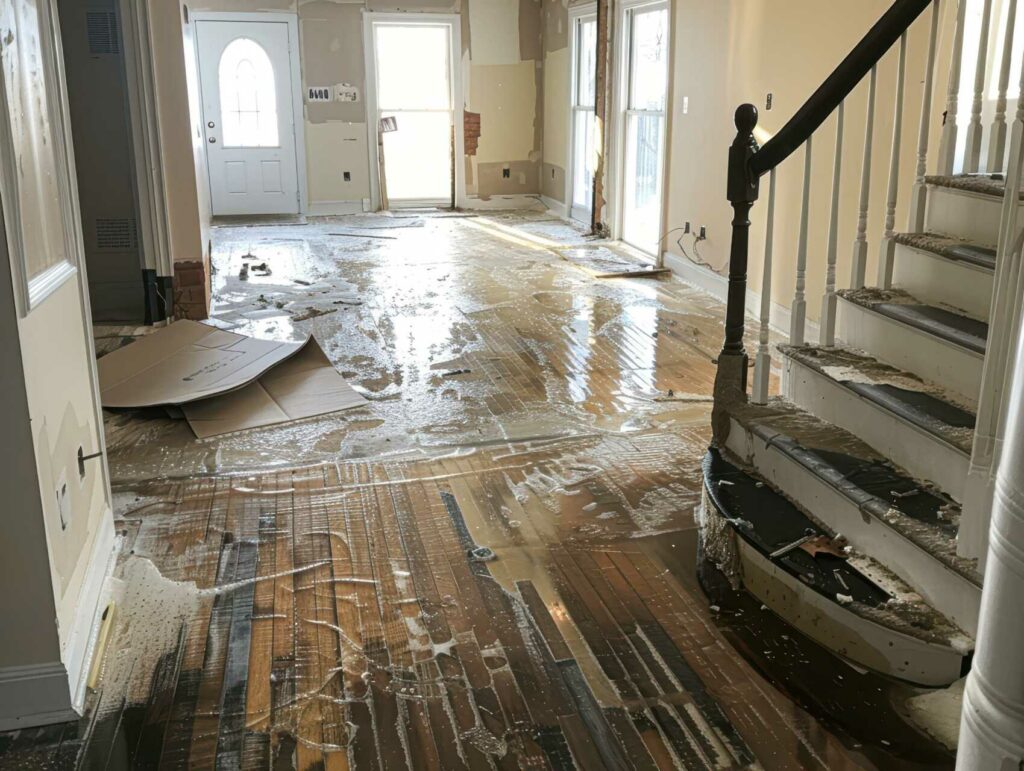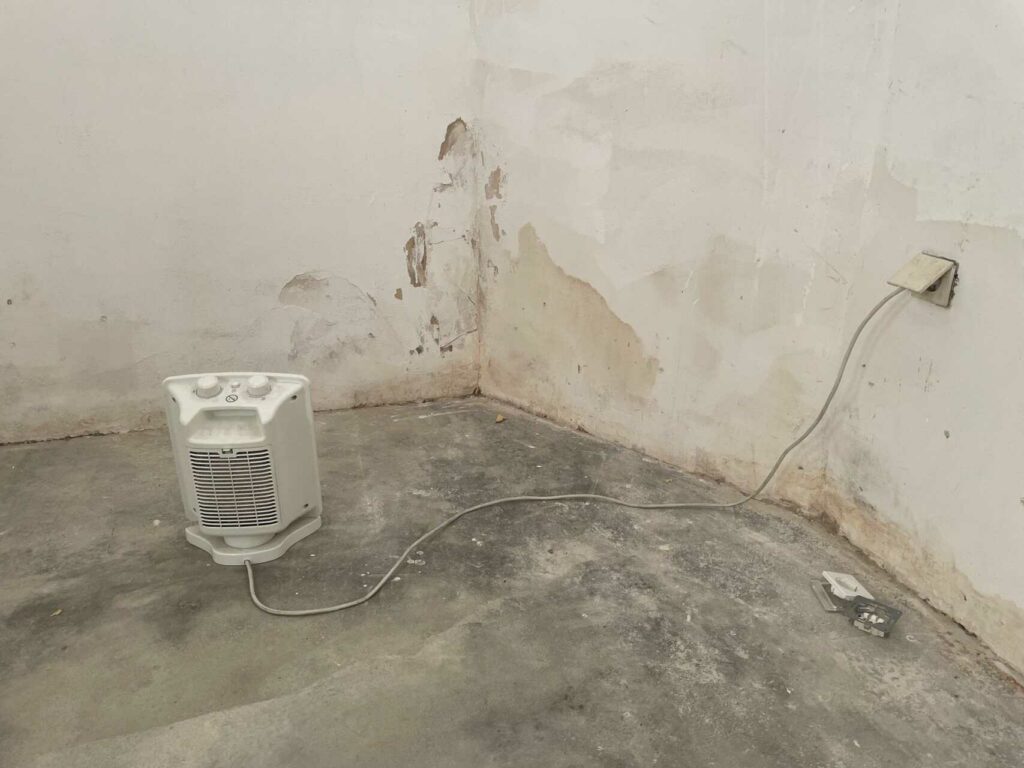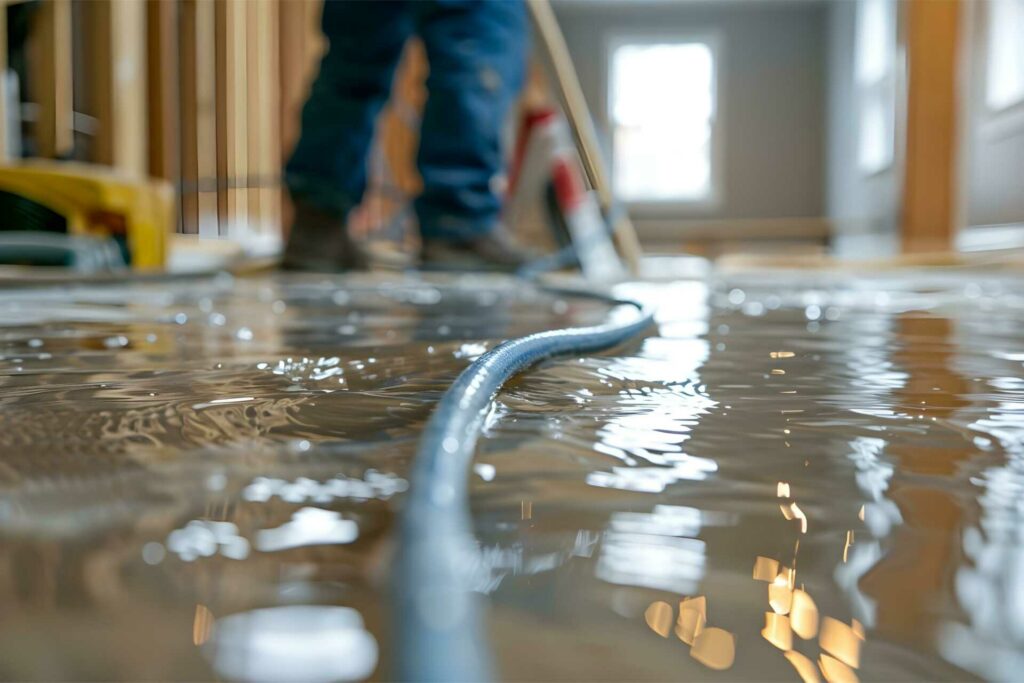Contents
Are you building a new home and wondering what a plumber will most likely install? What should be installed first when plumbing a building? Well, you’re in luck!
In this article, we’ll explore the essential installations a plumber will handle in your new home. From water supply lines and fixtures to drainage systems and gas lines, your plumbing expert will ensure everything is properly set up and ready for your daily needs.
So, let’s dive in and discover what a plumber can do to serve you!
Key Takeaways
- Plumber installs water supply lines made of durable materials like copper or PEX.
- Plumber installs fixtures like sinks, toilets, showers, and bathtubs, ensuring they are securely attached to water supply lines and properly sealed to prevent leaks.
- Plumber assesses hot water requirements and recommends the appropriate size and type of water heater, positioning it in a suitable location for accessibility and ventilation.
- Plumber installs gas lines made of durable materials like copper or stainless steel to power appliances like stoves, water heaters, and furnaces.
Water Supply Lines and Pipes
A plumber will install the water supply lines and pipes in your new home. When it comes to ensuring the proper functioning of your water system, the plumber’s expertise is essential. They’ll carefully install the water supply lines, which are responsible for delivering clean water to your faucets, showers, and appliances. These lines are typically made of durable materials like copper or PEX, ensuring long-lasting performance.
The plumber will also install the pipes that carry the wastewater away from your home. These pipes are designed to safely transport the used water to the sewer or septic system. By properly installing these pipes, the plumber ensures that your home remains clean and sanitary.
In addition to installing the supply lines and pipes, the plumber will also connect them to the main water source and sewer system. This involves making sure that all connections are secure and leak-free. They’ll use specialized tools and techniques to ensure proper sealing and prevent any water damage or leaks.
Furthermore, the plumber will install shut-off valves at various points in your home. These valves allow you to control the water supply to different areas or appliances, making it easier to perform maintenance or repairs if needed.
Fixtures and Faucets
To complete the water system in your new home, the plumber will install fixtures and faucets that allow you to access and control the water supply. These fixtures and faucets are essential components of your plumbing system, as they provide convenience and functionality in your daily activities.
Firstly, let’s talk about fixtures. These are the permanent devices that are connected to your plumbing system and are used to supply and drain water. Examples of fixtures include sinks, toilets, showers, and bathtubs. When it comes to installation, the plumber will ensure that these fixtures are securely attached to the water supply lines and properly sealed to prevent leaks.
Next, let’s discuss faucets. Faucets are the devices that control the flow of water from the plumbing system to the fixtures. They come in various styles and designs to suit your personal preferences and complement your home’s aesthetic. Whether it’s a traditional two-handle faucet or a modern single-handle faucet, the plumber will install it with precision to ensure smooth operation and water efficiency.
In addition to functionality, the plumber will also prioritize safety when installing fixtures and faucets. They’ll check for proper water pressure and install pressure-balancing valves to prevent sudden temperature changes, minimizing the risk of scalding. They’ll also install aerators in faucets to conserve water by reducing the flow rate without compromising performance.
By installing high-quality fixtures and faucets, the plumber aims to provide you with a reliable and efficient water supply system. They understand the importance of these components in your daily life and strive to serve you by ensuring proper installation and functionality.
Water Heaters
When installing a water heater in your new home, the plumber will ensure efficient heating and optimal performance. They understand the importance of having a reliable and efficient water heater, as it plays a crucial role in providing hot water for your daily needs.
The plumber will assess your household’s hot water requirements and recommend the appropriate size and type of water heater. They’ll install a water heater that’s energy-efficient, helping you save on utility bills while reducing your carbon footprint.
To ensure the water heater’s optimal performance, the plumber will carefully position it in a suitable location. They’ll consider factors such as accessibility for maintenance, proper ventilation, and proximity to water supply lines. By installing the water heater in an ideal location, they can prevent potential issues and maximize its lifespan.
During the installation process, the plumber will also ensure that all the necessary safety measures are taken. They’ll properly connect the water heater to the gas or electrical supply, following the manufacturer’s specifications. This will help prevent any potential hazards, such as gas leaks or electrical malfunctions.
Once the water heater is installed, the plumber will thoroughly test it to ensure it’s functioning correctly. They’ll check for any leaks, adjust the temperature settings, and verify that all components are working properly. This meticulous testing ensures that you have a reliable and efficient water heater from the moment you move into your new home.
Drainage and Sewage Systems
For optimal performance of your drainage and sewage systems, the plumber will ensure proper installation and maintenance.
When it comes to drainage systems, the plumber will install various components to ensure the smooth flow of wastewater. This includes installing drainage pipes, which are designed to carry wastewater away from your home. These pipes are typically made of durable materials like PVC or cast iron, and they’re carefully installed to ensure proper slope and alignment. Additionally, the plumber will install drain traps, which help to prevent unpleasant odors from entering your home. These traps are installed beneath sinks, showers, and toilets, and they work by trapping water in a curved section of the pipe, creating a barrier between your living space and the sewer system.
When it comes to sewage systems, the plumber will install a main sewer line that connects your home to the municipal sewer system. This line is typically buried underground and requires careful installation to ensure proper alignment and connection. The plumber will also install cleanouts, which are access points that allow for easy maintenance and inspection of your sewage system. These cleanouts are typically installed at key points along the sewer line, making it easier for the plumber to diagnose and address any issues that may arise.
In addition to installation, the plumber will also provide maintenance services for your drainage and sewage systems. This includes regular inspections to check for any signs of blockages or leaks, as well as cleaning services to remove any buildup or debris that may be affecting the performance of your system.
Gas Lines and Appliances
Once the plumber has completed the installation and maintenance of the drainage and sewage systems in your new home, they will move on to installing gas lines and appliances. Gas lines are essential for powering various appliances in your home, such as stoves, water heaters, and furnaces. It is crucial to have a professional plumber handle the installation and maintenance of gas lines to ensure safety and efficiency.
Gas lines are typically made of durable materials such as copper or stainless steel to withstand the high pressure of natural gas. During the installation process, the plumber will carefully measure and cut the pipes to fit the specific requirements of your home. They will then use specialized tools to connect the pipes and ensure a secure and leak-free system.
To give you a better understanding of the appliances that can be powered by gas, here is a table showcasing some common gas-powered appliances you might find in a new home:
| Appliance | Purpose |
|---|---|
| Stove | Cooking and baking |
| Water Heater | Providing hot water |
| Furnace | Heating the home |
| Clothes Dryer | Drying laundry |
By installing gas lines and appliances in your new home, the plumber is ensuring that you have access to efficient and reliable energy sources. They will also conduct regular maintenance to prevent any potential issues and ensure the continued smooth operation of your gas-powered appliances.
Conclusion
So, in conclusion, when you hire a plumber to work on a new home, they’re most likely to install water supply lines and pipes, fixtures and faucets, water heaters, drainage and sewage systems, as well as gas lines and appliances.
These essential installations ensure that the home has a reliable and efficient plumbing system, providing a comfortable living environment for its occupants.
So, make sure to hire a skilled plumber to get the job done right!




